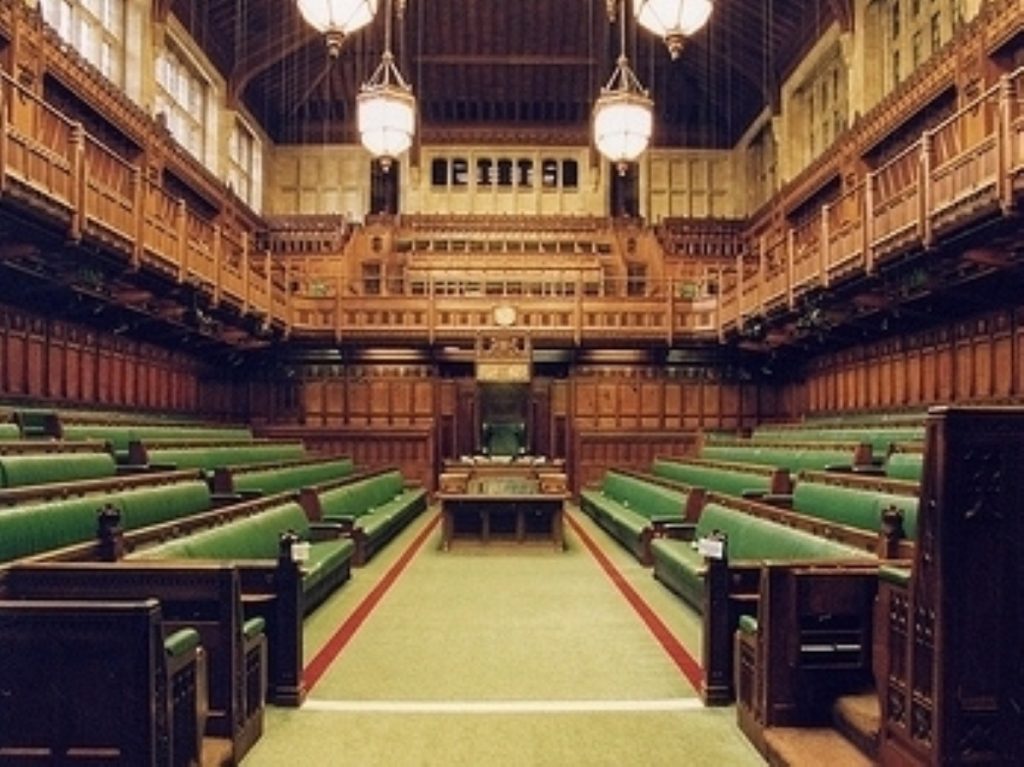Sketch: The subtle arts of swearing-in
The calibre of the coming parliament has already been sorely tested by the swearing-in process, which has quickly defeated some MPs.
You might have thought that these individuals, who will spend the next five years shaping the laws that will define this country, would be capable of reading a simple few lines without hesitation, deviation or – alas – gross inaccuracies. Sadly, you would be very wrong.
It would be churlish to name some of the MPs below, despite the stern warning from Speaker John Bercow that “anything said or done” could appear on TV or be picked up “by mic-ro-phones”.


Bercow should not have bothered. They spoke with the utterly relaxed ease of individuals who know nobody in their right mind would spend the afternoon listening to the inane chitter-chatter picked up by those very same mic-ro-phones.
They were quite right to throw caution to the wind, as the worst errors of all came when the mikes were very much switched on. Here are a few snippets of the worse mis-speaks. One MP said he promised to “bear true alliance” to the crown. Another virtually illiterate MP said he was also keen on loyalty to “her hers and successors”. What about the heirs? Black Rod, too, was not immune. He fluffed his lines so badly he had to start again. At least he didn’t hiss “line!” at the serjeant-at-arms.
One Northern Irish MP could barely bring himself to read the words of the oath at all. “Under protest I read: I, Mark Durgan…” At least he’d bothered turning up. As Bercow had told all those assembled before proceedings began, MPs who do not bother taking the oath are not allowed to give speeches in the chamber. Also, the Speaker added, “they will not receive any salary”. Culture secretary Jeremy Hunt couldn’t help but grin.
After the Speaker the Father of the House, Sir Peter Tapsell, was the first to be sworn in. He was followed by David Cameron who tried not to be distracted by the deputy prime minister hurriedly seating himself behind him with seconds to spare. The rather flustered Clegg was next: he chose the non-religious affirmation rather than the religious oath of allegiance, so help me God.
Later in the afternoon one backbencher told the clerk, conversationally: “Presumably in other times in our history the oath has been used to work out who is Catholic, who is Anglican, and all that?” The clerk suggested in reply: “Or who’s religious or not.” Having already taken his cue, politics.co.uk can reveal Clegg was the only Cabinet member of the early batches who rejected the religious version. By contrast, the Labour ex-Cabinet (we should probably start calling them shadow ministers now) were staunchly secular. There were two exceptions: Ben Bradshaw and Shaun Woodward.
After the initial excitement there was time to reflect on the laughter which had greeted John Bercow in the Lords, the oddness of seeing Shirley Williams on the government backbenches and the placid relaxation of Andrew Adonis. Back in the Commons MPs were steadfastly ignoring Bercow’s warning and making small talk with a vengeance.
“I’m still trying to get used to this side of the chamber,” universities minister David Willetts mused.
“Less than 20% of members first came here before 1997,” the polite clerk said informatively. “So they have no experience of a hung parliament.”
Willetts couldn’t cope. “It’s too much to take!” he replied. The clerk was soothing. “You’ll get used to it.”
Another MP wanted to know how long the process would take: “Have you timed it? Thirty seconds a shot, is it?”
The clerk, who was greeted affectionately by the Christian name Stephen (or it is Steven?), informed him that in 2001 it took three minutes per MP, but in 2005 it took just two-and-a-half minutes each. He couldn’t seem to work out what the difference might possibly have boiled down to.
The answer was obvious. After taking the oath MPs lined up to have a brief, handshake-wringing chat with Bercow, who was throwing himself into the 650 small-talk exchanges facing him in the coming hours with aplomb.
The clerk, refusing to note that it was the Speaker’s chattiness which was responsible for the slow progress, was nevertheless forced to periodically halt the swearing-in proceedings to allow the Bercow Backlog to diminish.
“Do you mind if we let the queue subside just a tiny bit?” he said a little desperately at one stage. The MPs, still overflowing with goodwill after being re-elected, didn’t mind in the slightest.

